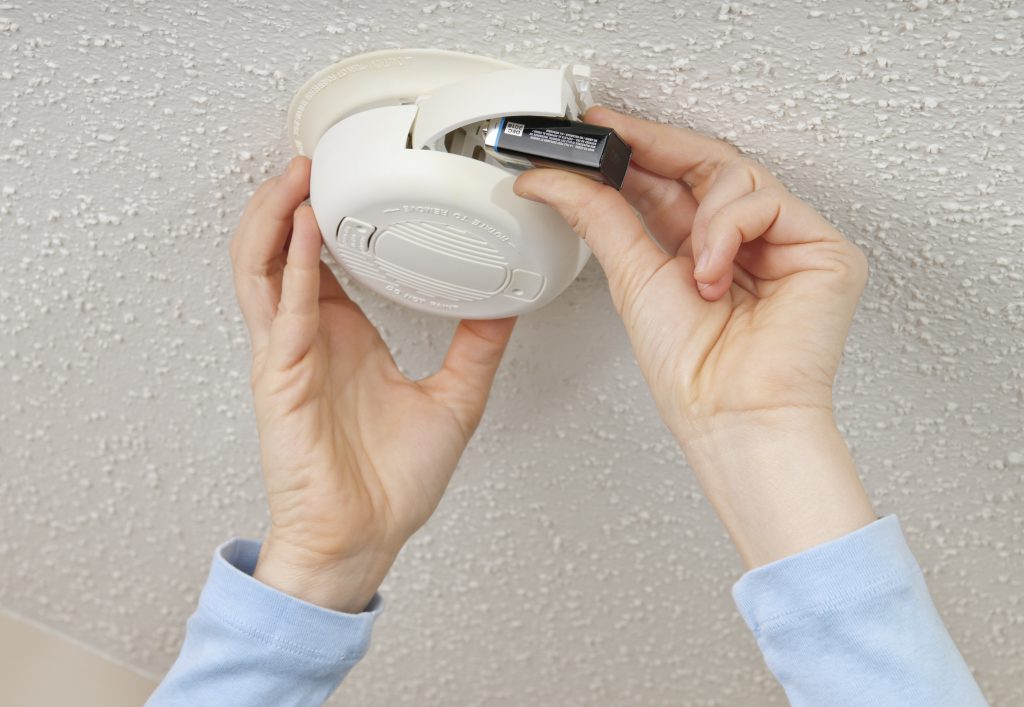According to official government statistics, in 2012-2013 there were 22,500 fires recorded in commercial and industrial buildings, such as retail units and industrial manufacturing plants.
65% of deaths which occurred in non-dwelling building fires were caused by no smoke alarms being installed in the property.
In this day and age, it is astonishing to believe that many commercial buildings do not have the correct measures in place in the event of a fire, leaving many lives at risk as a result.
It cannot be stressed enough how important it is to have a fire alarm installed, preferably on every level of the building, and to regularly check whether it is operating correctly.
Safety tests on your smoke detector can be the difference between lives lost and lives saved.

How Do Smoke Detectors Work?
All smoke detectors are made up of two basic components; a sensor to detect the smoke and a subsequent loud piercing alarm to make sure occupants of the property wake up.
A standard smoke alarm typically uses one or both of these methods, sometimes with the addition of a heat detector for extra protection in a commercial property.
Fire alarm systems in commercial buildings are characteristically bigger than residential properties to fit with the overall size of the structure.
Careful design and planning is required for larger sized buildings such big office blocks or retail units, where a full fire risk assessment needs to be carried out before installation.
In buildings such as these, fire detectors will need to be suitably spread out across all floors so that the alarm will be able to quickly alert people to the danger in the event of a fire wherever it is in the property. All fire alarms need to be interlinked together with a central control panel which must be regularly monitored so if a fire breaks out in the building, it can be easily located.
In the event of a fire, warning personnel and members of the public is the top priority for any commercial setting.
There is an extensive range of commercial fire alarm systems available on the market to fit with the specifications of each individual building.
The main systems include:
– Wireless or radio fire alarms. These are the ideal design for large buildings as they do not require hardwiring and can cover a wider range of up to 1.5km, ensuring they cover the entire property.
– Fire alarms with PA systems. The PA system allows for public announcements to be communicated to everyone in the building, explaining specific evacuation instructions so people are alerted to the fire and know what action to take.
– VESDA (Very Early Smoke Detection Apparatus). This is a specially-designed device which constantly samples the air in the building and processes it to detect any traces of smoke.
These systems are essential for buildings which regularly hold large numbers of people, such as cinemas, theatres and concert venues. The fire detection system will need to raise the alarm as soon as the fire starts so the evacuation process can begin immediately.
Depending on the commercial environment, an alarm is required to detect smoke or heat, so it is highly recommended you consult with a professional fire protection technician who can advise you on which design is best for your property.
For the ultimate fire safety protection, take a look at the fire alarm systems we offer here at Protect & Detect.
Our fully qualified team of specialists deliver a comprehensive fire alarm installation and maintenance service, fitting a variety of fire alarms of different brands and models in commercial buildings throughout Ipswich, Norwich, Colchester and the surrounding areas.
Our wealth of experience means we have the knowledge and expertise to deliver first class fire safety services quickly and efficiently. This has allowed us to secure a term maintenance contract for the fire alarm and detection systems for FDRC Felixstowe Dock and Railway Company with Hutchinson Ports, proving us to be a company you can trust. Simply give us a ring or fill out a contact form online today for further information.
Protect & Detect is a leading fire safety and security company, servicing Ipswich, Colchester, Cambridge, Bury St. Edmunds, Chelmsford and beyond.
Protect & Detect offers a wide range of fire safety and security services including; fire alarms, fire extinguishers, burglar alarms, intruder alarms, fire sprinkler systems, access control, door entry systems, CCTV, barriers, nurse and warden calls. Contact our friendly team today for a quick quote.

